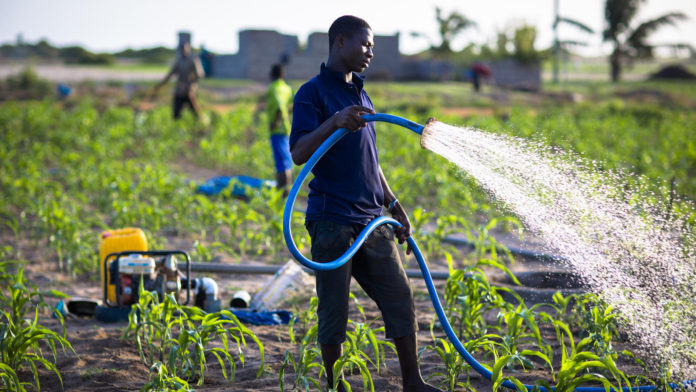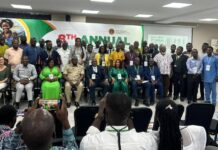The Upper West Region has over the years provided large quantities of cereals, shea butter, yam, mango, and a host of other fruits and vegetables to feed the country.
Dr. Hafiz Bin-Salih, the Upper West Regional Minister, made this known when he took his turn to give a brief on the impact of Agriculture in his Region on day two of the National Farmers Day Fair that is currently ongoing at the Central Regional Capital, Cape Coast.
The five-day fair, which opened on Monday amidst funfair, is a prelude to the 37th Farmers Day celebration which falls on Friday, December 03 under the theme “Planting for Food and Jobs; Consolidating Ghana’s food systems”.
He indicated that some 240 Communities have benefitted from the Planting for Export and Rural Development (PERD) initiative and other agricultural interventions laid out by the government to assist farmers in the region that had impacted positively on the local economy.
Under the Planting for Food and Jobs, farmers received 65,149.8 metric tones of MPK and 6,234.32 metric tones of fertilizer for their farming activities.
Further, a total of 7,622.84 metric tones of various seedlings were distributed to farmers by Metropolitan, Municipal, and District Chief Executives (MMDCEs).
Under Rearing for Food and Jobs, he said 1,999 sheep were given to Farmers in the first phase of the programmme and an additional 414 farmers have recently benefitted from the package.
The Minister, however, revealed that the erratic rainfall from May to September every year is a challenge threatening food security in the area.
The region with an average annual rainfall of 1,150 millimeters, experienced torrential rainfall, particularly in August this year, resulting in floods that displaced cattle, properties and also destroyed crops.
“The situation was worsened by the collapse of some bridges, cutting off some major roads in some parts of the Region” Dr. Salih added.
Another challenge, he said is the prolonged dry season from October to April, characterised by intense hot weather and bush fires that stopped vibrant agricultural activities.
He appealed to the government to hasten the implementation of the One Village One Dam project to boost agricultural production all year round. “we can do better if our situation is different”, he added.
Dr. Bin-Salih, called for resources to process agricultural produce in the area because these commodities continued to be a potential and investment for agro main industrial development for jobs and wealth creation.
Commending farmers for their immense services, he said it was worthwhile to reward them for their huge contribution to the national food basket and the economy as a whole.








